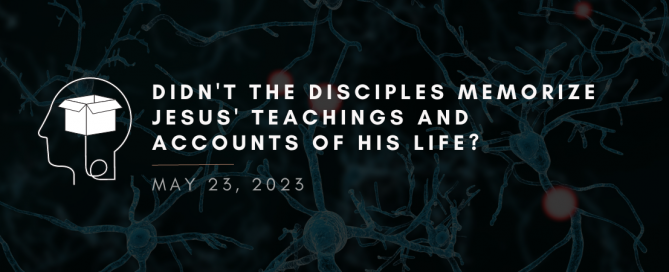Do People in Oral Cultures Have Better Memories?
Do people in oral cultures “remember” things better, and work hard to memorize what they learn? The other night I was hanging out with a friend and she started talking (in a context unrelated to the New Testament) about how oral (non-literate) cultures always worked so hard to preserve their communal memories of the past, by passing along traditions that would not change since, of course, they had no way to preserve them in writing. I simply nodded my head and let her get on with it. I was tempted to tell her that I had written a book about memory, how it works and sometimes doesn’t, how oral cultures preserve traditions, and sometimes not so well, etc.. I decided not to mention it to her; didn’t matter in the context. My book Jesus Before the Gospels (HarperOne, 2013) is, in my personal opinion, the best book I’ve written that (almost) no one has read. I gave it a bad title. Plus, my publisher wasn’t that interested in it and didn’t do much [...]



